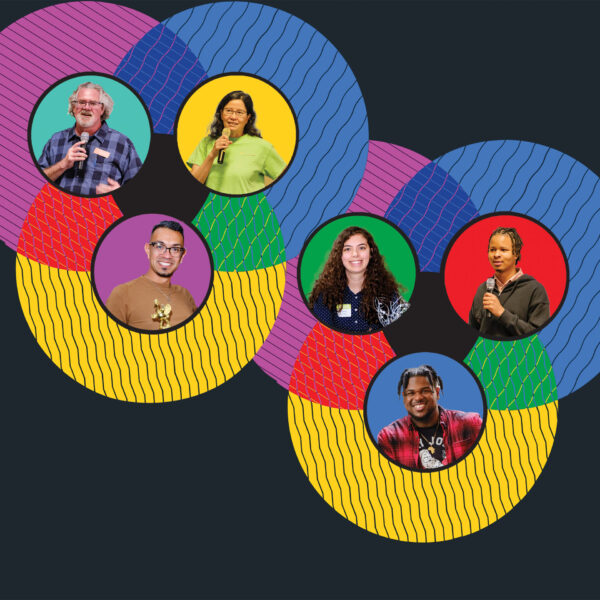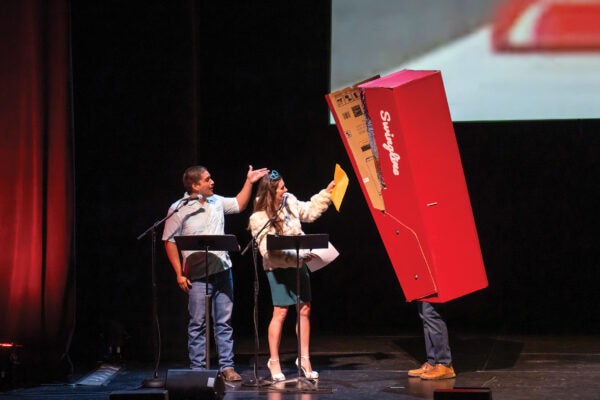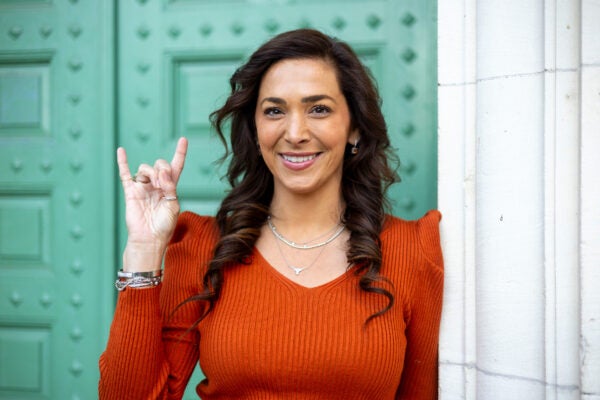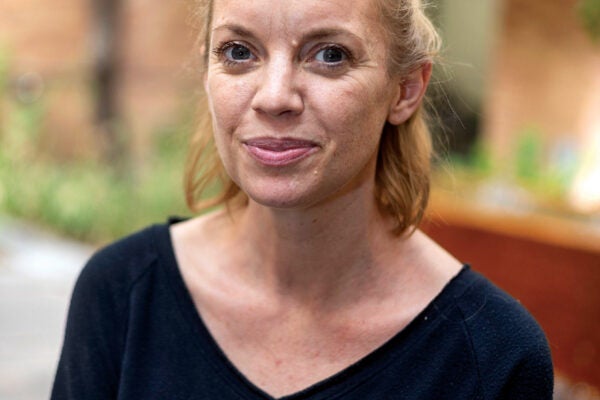When Richard Costa was in The Old Guard in Fort Myer, Virginia, he facilitated over 3,000 ceremonies. Of all the vigils he oversaw, military-dependent funerals were the hardest.Costa, who was single at the time, decided it was his duty to shield military families with children from these painful losses. He stoically refused to let anyone help him.
As he grew older, got married and had children of his own, that “right” decision followed him long after his time in the military. In the thick of the COVID-19 pandemic, extended periods of time alone with his thoughts reawakened memories from these funerals. His time in the military resurfaced at the forefront of his thoughts at inopportune moments. He found himself in the depths of depression and PTSD, and his wife encouraged him to seek help. Costa found that help through group therapy at the Department of Veterans Affairs.
The support group allowed him to feel seen, and understood as he waded through the waters of his post-military struggles. Months later, he was approached by Douglas Gilpin, Scott Griffin and Darren Hale, who worked with him in UT Facilities Services and who were veterans themselves. When they asked him to join a University Resource Group (URG) focused on veterans and members of the military at UT, he jumped at the chance to help other service members and dependents find the help and camaraderie he found at the VA.
“I like to help people, so anything that I can do to help other veterans I will gladly be a part of,” Costa says.
URGs provide connections for staff and faculty seeking colleagues who share similar backgrounds, life experiences and interests. Individuals find friendship, mentorship and local community service opportunities. The first two URGs were the Black Faculty and Staff Association (BFSA), founded by Dr. Wanda Nelson in 1980, and the Hispanic Faculty and Staff Association (HFSA) founded in 1991. In the early 2000s came the Pride and Equity Faculty and Staff Association (PEFSA) and the Asian/Asian American Faculty and Staff Association (AAAFSA). Most recently, the Military/Veterans Faculty and Staff Association (MVFSA) joined the list in 2022.
Helen Wormington, executive director of strategic initiatives at the Division of Diversity and Community Engagement, says that although UT Human Resources highlights the URGs during onboarding orientations, most URG members find the groups through word-of-mouth.
URGs initially formed as branches of the UT Staff Council. They originally focused on pay, parking, day care and compensation. Individual members of the Staff Council sought to connect deeper and find a community among the 27,000 employees geographically distributed throughout 18 colleges and schools. They spearheaded URGs to focus more on the individuals who make up the campus community and generate a deeper sense of belonging.
It’s nice to connect with a group of people … and most importantly, just have someone listen to you and validate your concerns.
A URG starts with one or two individuals who desire to gather a cohort of colleagues. Wormington says that faculty and staff tend to stick to the bubble of their office or department. Once several individuals come together to form a URG, they create the first real networking opportunity that bridges these separate campus silos. The founders of a new URG first must find 50 community members, including a leadership board. Once members join, the group must create its own bylaws, establish meeting times and build a strategic funding plan.
In September, the military group MVFSA joined the list of URGs. Costa says that once he, Gilpin, Griffin and Hale had gathered the minimum 50 faculty and staff members, they began hosting small events — such as a soft launch at Haymaker on Manor Road — to share the bylaws of the organization and distribute newsletters to drive traffic to their website.
“I think all of our veterans have a hard time reaching out for help,” Costa says. “And so this is a good way to pull them in and talk to them and say, ‘Well, think about it. Here’s what we can do for you,’ or ‘Here’s a group that can help you.’”
As MVFSA enlists new members, future plans include building relationships with other veteran- and military-focused groups in the greater Austin area, Costa says. He also wants to create a list of local veteran-run businesses that his group can support off campus.
URGs also function to connect new employees with more senior staff and faculty. Beginning work at the university can feel daunting, but the friendships and mentorships accessible through the URGs can help support new hires.
Wormington, who works in the Tower, attends meetings to engage with people across campus she can relate to. “For me, it’s all about conversing with old and new staff,” she says.
Liz Elsen, the pride and equity URG co-chair, finds that her organization provides advocacy and equal representation to its members.
“It’s nice to have a place where you can come together with your colleagues and talk about interpersonal things (where) you’re not worried about judgment,” she says. “You can talk about your job and just sort of check in with each other. We also do things like advocate for broader inclusion around LGBTQIA+ identities on campus.”
PEFSA extends its advocacy to students and the surrounding city as well. In the past they have organized events like gender affirming meditation workshops, hikes, movie nights, and cohorts for attending peaceful rallies. In 2016 the group even hosted a vigil in Austin for the Pulse nightclub shooting in Orlando, Florida.
“It’s nice to connect with a group of people … and most importantly, just have someone listen to you and validate your concerns. (It’s nice to know) there are other people that share those concerns,” Elsen says.
Wormington believes the URGs were created first and foremost to ensure that members have a community and a place where they belong and feel included. The URGs also offer a place to develop professionally and learn from various members spread across the colleges. As more URGs form, The Division of Diversity and Community Engagement stands ready to support their efforts.



